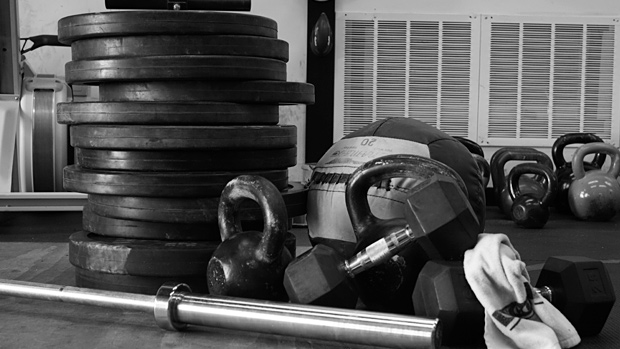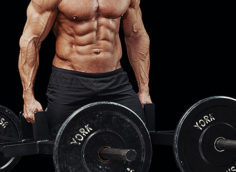Judgement-Free Lies
Planet Fitness branded itself the judgement-free zone: a place where you can work out without ever being laughed at for the way you exercise or how you look. They promise that you'll fit right in, that it's your gym, and not the gym of intimidating guys and gals with intimidating muscles or heavy barbells.
The obvious problem is that they're the furthest thing away from being judgement free. Why? Because judgement free means that you'll be accepted regardless of how you look, how well you perform, and what kind of exercise you do.
A place that discriminates against those who are in shape and like to train hard can't be "judgement free." That's fine. That's their business model and a representation of the clientele they're trying to attract.

It's easy to claim to be judgement-free when everybody is the same. You're not going to judge someone who looks like you, trains like you, thinks like you, and acts like you.
To truly be non-judgemental you actually have to be in a position to judge or be judged to start with. In the context of fitness, that means you have to be around a diversity of lifters, athletes, and exercisers, all of whom have a diversity of experience, ideas, methodologies, and goals.
The benefit of being non-judgmental is that you won't paint yourself into a corner and impede your own growth by worshipping one training niche and having only one objective for the rest of your life.
Nor will you be imprisoned by your own dogmatic false assumptions about how other people do fitness wrong. You'll be able to test and use different forms of training and see for yourself what they're like, instead of collecting second-hand criticism from the other people who think exactly like you in your internet forum or Facebook newsfeed.
I train athletes at Tonic CrossFit/Gym le Chalet. The facility is divided into two sections. The first is a performance and CrossFit section, which itself is divided into two sections, group classes and open gym. There you'll find Olympic bars, bumper plates, chains, bands, glute-ham raises, reverse hypers, safety squat bars, Dead-Squat™ bars, kettlebells, sleds, logs, etc.

The other section is a more traditional gym with all the most common machines, free weights, benches, and cardio machines. All members have access to both sections.

What are members like? We have CrossFitters (elite and recreational), pro and amateur hockey players, football players, track athletes, and all kinds of other athletes. We also have average Joes just trying to get in better shape, competitive powerlifters, Olympic lifters, and bodybuilders.
And you know what? Everybody trains together, everybody is supportive, and nobody acts superior. And it's not unusual for a hockey player to go do a WOD or for a CrossFit athlete to go do some curls. Now that's a judgement-free zone.
My gym represents what the training world should be like, even the internet training world:
- A place where everybody who wants to train hard can fit right in without being judged.
- A place where you don't have to define yourself by your one-and-only training style or the guru who you think has all the answers.
- A place where you can go ask a powerlifter for some help on your deadlift, a weightlifter to show you how to do a clean & press, a bodybuilder to tell you how to get lean, and a hockey player to help you pick up girls.
- A place where you're encouraged to try something new and not get laughed at by the herd if you feel like straying away a bit.
- A place where everybody who trains hard is respected regardless of his or her experience level, goals, or training style.

I've written a lot about how CrossFit athletes should be shown more respect. But the reverse is also true.
Some CrossFitters tend to ridicule machines and isolation work. Some believe it's an inferior form of training: "We don't use machines, we are one organism." Sure, there's more merit in learning how to snatch, deadlift heavy, or do a muscle-up than there is in doing a biceps curl. They simply require more technique.
But the day you need an isolation exercise to strengthen a weak link, or a machine to be able to continue training because of an injury, you'll see bodybuilding work with a new set of eyes.
You might need to do some leg presses, leg curls, leg extensions, or reverse hypers to keep training the lower body when injured. You might need to do some direct triceps work to help with your muscle-up lockout. You might need nutrition help from the bodybuilder who knows all about getting super lean to drop some fat and perform better.
You never know which tool will help you progress in the future and which kind of lifter will be able to help you. So you shouldn't judge any of them. If you have only one tool is your toolbox, well, you can't fix much of anything.
Remember what I said earlier: it's easy to claim to be judgement-free if you cut out all of those who are different from you. A truly positive, supportive attitude means that you respect everybody who works hard even if they have different preferences.
So if you were a gym, which one would you be?
Are you Planet Fitness? Let's hope not.



